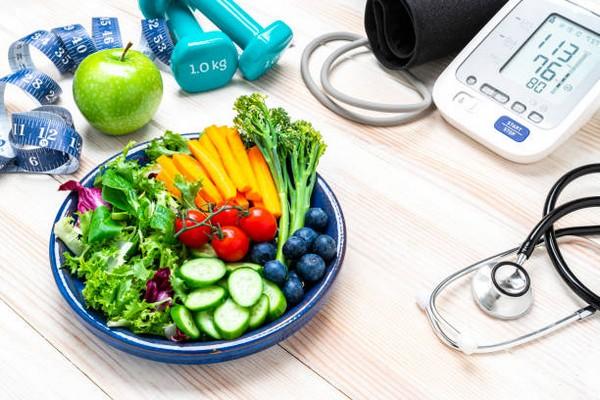Amid the overwhelming flood of trendy diets that promise rapid weight loss, it’s easy to fall into the trap of cutting out entire food groups—such as carbs, gluten, or dairy. However, as dietitians suggest, restrictive eating habits are rarely the key to sustainable weight loss. Instead, focusing on nutrient-dense foods that promote satiety and nourish the body is a more effective approach. The following nine foods offer a balanced combination of fiber and protein, which are essential for weight loss without leaving you feeling deprived.
1. Salad Greens: Low-Calorie, High in Nutrients
Adding more vegetables to your diet is a cornerstone of weight loss. Salad greens like spinach, kale, collards, and lettuce are nutrient-packed while being low in calories, making them an ideal choice for filling meals. These leafy greens provide both fiber and water, which help keep you hydrated and satisfied. For convenience, keep pre-washed salad greens or ready-to-use salad kits on hand to quickly toss together a nutritious meal. If salads aren’t your thing, try blending them into smoothies for an easy way to sneak in more greens.
2. Popcorn: A Satisfying, Low-Calorie Snack
Snack choices play a critical role in maintaining energy levels and curbing hunger between meals. Popcorn is a great low-calorie option that allows you to enjoy a large serving, making it easier to stay full without derailing your weight loss goals. A 3-cup serving provides around 4 grams of fiber, which contributes to feelings of fullness and satisfaction. Dietitian Breanna Killeen, M.P.H., RD, suggests keeping popcorn on hand as a healthy snack to avoid overeating during the day.
3. Olive Oil: Healthy Fats for Satiety
Olive oil is a staple in many kitchens for its heart-healthy fats and delicious flavor. A tablespoon of olive oil contains 14 grams of fat, including unsaturated fats that help lower cholesterol and promote overall heart health. While fat might seem counterintuitive for weight loss, it plays an important role in keeping you full and helping your body absorb key nutrients. Whether drizzled over salads or used for cooking, olive oil is a versatile addition to any diet.
4. Whole-Milk Yogurt: Satisfying and Nutrient-Rich
While fad diets often promote low-fat options, choosing whole-fat yogurt can be more beneficial for weight loss and overall health. Unlike low-fat versions, whole-milk yogurt offers a greater sense of satiety, helping to curb snacking later in the day. In addition to being an excellent source of calcium and probiotics that support digestive health, whole-milk yogurt provides protein that aids in muscle retention. Opt for plain, unsweetened yogurt and add fresh fruit or homemade granola for a naturally sweetened treat.
5. Chia Seeds: A Fiber and Protein Powerhouse
Chia seeds may be small, but they pack a big punch when it comes to fiber and protein. Just two tablespoons of chia seeds contain 10 grams of fiber and 5 grams of protein, making them an excellent option for adding fullness to meals. Research shows that chia seeds can aid in weight loss and help reduce waist circumference. Incorporate them into smoothies, oatmeal, or even mix them with water for an easy, nutritious addition to your daily diet.
6. Eggs: A Versatile, Protein-Packed Option
Eggs are an affordable and versatile source of high-quality protein, making them a great addition to any weight loss plan. They are rich in micronutrients such as biotin and vitamin D, which support overall health. Whether scrambled, hard-boiled, or incorporated into various dishes, eggs can be enjoyed throughout the day to keep hunger at bay. They also provide healthy fats that help keep you satisfied longer, making them an excellent choice for those on lower-carb or gluten-free diets.
7. Seltzer Water: A Hydrating, Zero-Calorie Beverage
For those who love the fizz of carbonated drinks, seltzer water is a healthy, zero-calorie alternative to sugary sodas and other beverages. Staying hydrated is key for maintaining energy levels and controlling hunger, and sipping on water or seltzer throughout the day can contribute to feelings of fullness. To add flavor without the calories, squeeze in fresh lemon or lime for a refreshing twist.
8. Oats: A Fiber-Rich Breakfast Option
Oats are a nutrient-dense, budget-friendly option for breakfast that offers long-lasting fullness and a wealth of health benefits. Rich in soluble fiber, oats help lower cholesterol and promote a sense of satiety, making them an excellent choice for weight management. Eating a fiber-packed breakfast, like oatmeal, can also help you avoid mindless snacking later in the day. For a nutritious start to your morning, top your oats with fruit, nut butter, and chia seeds.
9. Nuts: A Protein and Healthy Fat Snack
Nuts are another great snack option that delivers protein, healthy fats, and fiber to help curb hunger between meals. Whether you prefer almonds, pistachios, or walnuts, nuts provide a satisfying crunch and are proven to help prevent long-term weight gain when eaten regularly. They also offer a range of micronutrients that contribute to overall health. For a quick snack, enjoy them on their own or pair with apple slices or rice cakes for added variety.
Conclusion
Successful weight loss doesn’t require the elimination of entire food groups or strict calorie-counting. Instead, focus on incorporating nutrient-dense foods that are rich in protein, fiber, and healthy fats to help keep you full and satisfied. From salad greens and yogurt to chia seeds and eggs, these dietitian-approved grocery items will support your weight loss journey while promoting long-term health. And remember, weight loss is a gradual process—embrace a balanced approach and enjoy the foods that nourish your body.
Related Topics:
Can I Do Intermittent Fasting with My Workout Routine?


